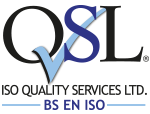Risky Business – A closer look at the key areas of risk affecting your business
26 May, 2017
Risk management can be defined as “the identification, assessment and prioritisation of risks followed by co-ordinated and economical application of resources to minimise, monitor and control the probability and/or impact of unfortunate events or to maximise the realisation of opportunities. Risk management’s objective is to ensure uncertainty does not deflect the endeavour from the business goal.” Wikipedia
 As business owners and managers, we all know that we need to take risks sometimes. Taking risks helps businesses to grow, develop and prosper – the farmer that now runs a campsite for example. But all businesses, regardless of size, need to be aware of their risks, analyse them and address them to help not only minimise the eventuality of that risk occurring but to have the processes in place to resolve issues quickly and effectively should the worst happen.
As business owners and managers, we all know that we need to take risks sometimes. Taking risks helps businesses to grow, develop and prosper – the farmer that now runs a campsite for example. But all businesses, regardless of size, need to be aware of their risks, analyse them and address them to help not only minimise the eventuality of that risk occurring but to have the processes in place to resolve issues quickly and effectively should the worst happen.
So what types of risks do businesses need to think about? Risk for each business can be very specific. Broadly however, these can be split in to five main categories:
- Strategic
Most businesses have (or should have) a business plan. But how often is this reviewed? If you don’t review and update regularly your plan can become very outdated. As a result of this, strategic risks can take many forms – changes in technology, new competition, decreased (or indeed increased) customer demand to name a few. Failure to predict and adapt to these changes can present a serious strategic risk for businesses.
- Compliance
We’ll assume for these purposes that you are all currently legally and regulatory compliant! But laws and regulations are often updated. How do you keep up to date with changes in your trading sector? What happens if you branch in to new sectors, find new suppliers or change geographical locations perhaps even to start trading internationally? Breach of laws and regulations can have a significant cost implication for business and in some cases, can result in inability to trade.
- Operational
This type of risk would be something that could severely affect the day to day running of your business. It may be a people failure – an employee who wipes a whole client database or makes an incorrect payment to a supplier, or it could be external such as a power cut of a significant duration. Either way the operational effect to continuing business on that day and beyond could be huge.
- Financial
The money flowing in to and out of your business is its lifeblood. Any possible change in that flow is a risk. Does a large proportion of your revenue come from just one customer? Have your clients been gradually and surreptitiously extending their credit terms? What happens if a major customer becomes insolvent? Do you have a lot of debt as a business? Do you have a loan on a flexible rate interest? What happens if interest rates increase?
- Reputational
Whatever business you are in, your reputation is key. It is the reason why your customers do business with you. In this day and age, reputation can be damaged in a 140 character Tweet. It’s easier than ever for customers (or competitors) to air their potentially negative opinions of your business. This could result in loss of business which could be immediate or gradual. Employees could become demoralised and leave which could in turn lead to recruitment issues. Other business and strategic partners may be less keen to be associated with you. There could be legal repercussions which could be costly. How would you deal with this?
None of us has a crystal ball to predict the future (if only!) Thinking about what risks are relevant to your business and having an honest conversation with your co-owners/directors/employees about how you would cope should the worst happen is the first step in becoming a proactive, responsible and accountable business.
The next step is to utilise the information you have about potential risks to your business and put suitable processes and procedures in place for dealing with these risks. By putting some simple, well documented procedures in place you can minimise potential business downtime, lost employee hours and perhaps ultimately loss of customers in the face of any risk.
Don’t forget, review your risks periodically. They can and will change over time. Failure to review your risks could end up being your biggest risk of all!
ISO Quality Services Ltd are proud to specialise in the implementation and certification of the Internationally recognised ISO and BS EN Management Standards.
Do you want to get ahead of your competition? Win more tenders or save time and money on reoccurring issues? Contact us today on 0330 058 5551 or email info@isoqsltd.com.
Alternatively, you can request a quote by filling out our enquiry form and a member of our team will be in touch shortly.





